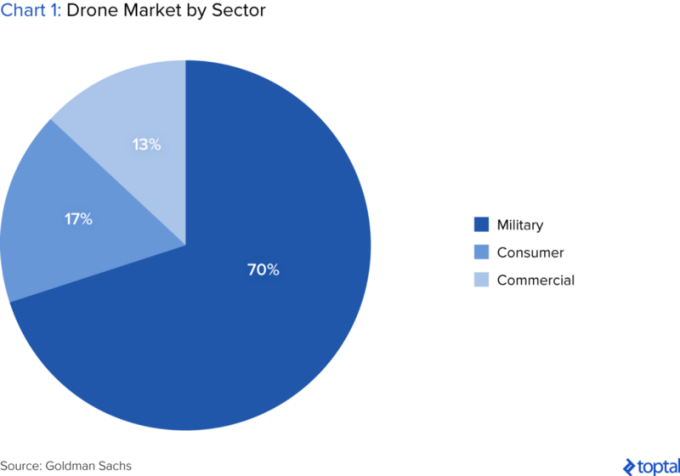When Zipline, the California-based drone-delivery startup that delivers critical medical supplies in countries was launched last year April in Ghana, naysayers called out the government for wasting close to $12.5 million in signing on the startup, an amount which, according to them, should have been better spent on more important and simpler things the health sector really needs such as the critical shortage of hospital beds, gloves, among others. But, it appears that the table has been turned and the naysayers have buried their faces in shame.

By the terms of the deal with the Ghanaian government:
- Zipline was to make 600 deliveries a day (150 deliveries from each of the four centers it would be operating from) for the next four years, starting from 2019 and they would be paid per successful delivery.
- For that to happen, Ghana had been billed $12.5 million by Zipline to cover the period. It has also most recently been given a $10 million tax concession by the Ghanaian government.
- The hope of Ghana’s health policymakers is that the drone delivery system which has faster drop-off rate will improve its health outcomes including reducing its maternal and infant mortality rates.
However, the Coronavirus outbreak has meant that a bigger crisis has arisen, and Zipline appears to have been at the right place at the right time. On April 17, the startup begun delivering Covid-19 test samples in the country’s two largest cities — Accra, the nation’s capital, and Kumasi, the country’s second-largest city — the first time that drones have been used in this way to deliver Covid-19 test samples. The new delivery service allows the Ghanaian government to more closely monitor and respond to the spread of the disease in some of the countries most remote areas.
“Zipline is dedicated to helping Ghana in its fight against the Covid-19 pandemic,” said CEO Keller Rinaudo. “Using contactless drone delivery to transport Covid-19 test samples will allow the government to respond to the pandemic and help save lives more quickly.”
The first of delivery saw 51 test samples collected from patients at rural health facilities and transported to the company’s distribution center in Omenako, Ghana. Over the course of four separate flights, the company delivered those 51 samples to the Noguchi Memorial Institute for Medical Research in Accra for testing and analysis.
The company will also be delivering Covid-19 test samples collected at regional hospitals near its Mapong distribution center to the Kumasi Center for Collaborative Research. The first such delivery took place on Saturday, April 18. The company said it expects to operate this new daily service for the duration of the government’s Covid-19 response efforts, marking the first time in history that autonomous drones have been used to make regular long-range deliveries into densely populated urban areas.
Since its launch in October 2016, the company’s autonomous drones have flown more than 2 million miles and delivered more than 60,000 vaccines, units of blood and other medical products in Ghana, Rwanda and India.
From all these, there is no need to saying further that Zipline saw the COVID-19 pandemic on time.

Read also: Zipline In Ghana: What Is Left For African Entrepreneurs?
The Era of Drones Is Inevitable and Smart African Startups Which Take On The Risk Could Win Big
Already, drones are business models to these industries:
- Global courier and delivery service companies using drones for last mile delivery.
- Logistics companies have been experimenting with drones for delivery. According to Business Insider:
“Drone deliveries will translate to instant cost savings, part of which will be passed onto consumers.It costs far less to operate a fleet of unmanned aerial vehicles than it does a fleet of ground vehicles.It costs 10 cents to deliver a 4.4 pound(2kilo) package over six miles(9.7kilometers)using a drone,according to Raffaello D’Andrea,who co founded Kiva Systems (the warehouse robots used by Amazon) . That’s far cheaper than the $2 to $8 per package that it costs Amazon today using ground transportation for deliveries over this “last mile.”
Offering 30 minute delivery at such a low cost to consumers could boost Amazon’s eCommerce and retail market share.That’s because “high than expected shipping costs” are the top reason why consumers abandon a shopping cart online. The retailer achieving the most significant reductions in shipping fees will likely win consumer loyalty and market share.
3. Companies providing drone operations and management:
The drone era will also benefit companies that offer service drones for flight and management console or software. Matternet still is exploring subscription based leasing of drones.
Post-Covid-19, There Is No Doubt That Last Miles Delivery Drones Are Finally Coming To Stay
This is why for Ghanaian nurses like Gladys Tetteh, the use of drones are very much a case of what’s not to like?
“It makes us work faster and the mothers will not stay too long here trying to vaccinate their children,” she said.
Charles Rapulu Udoh

Charles Rapulu Udoh is a Lagos-based lawyer who has advised startups across Africa on issues such as startup funding (Venture Capital, Debt financing, private equity, angel investing etc), taxation, strategies, etc. He also has special focus on the protection of business or brands’ intellectual property rights ( such as trademark, patent or design) across Africa and other foreign jurisdictions.
He is well versed on issues of ESG (sustainability), media and entertainment law, corporate finance and governance.
He is also an award-winning writer.
